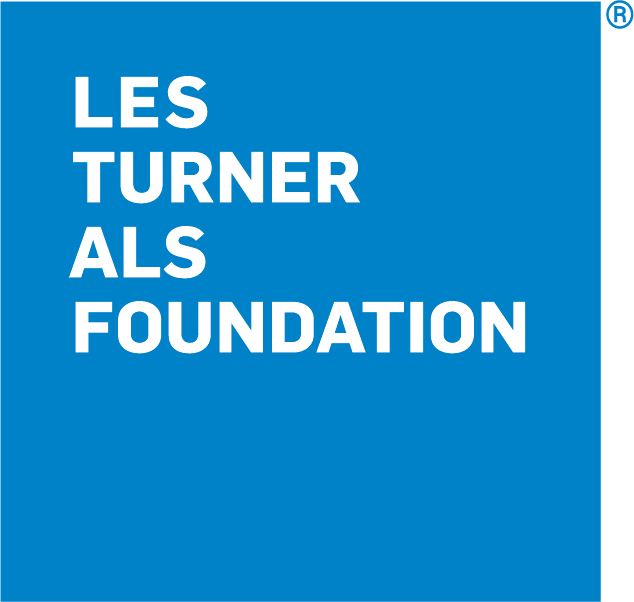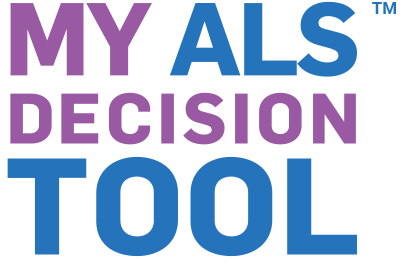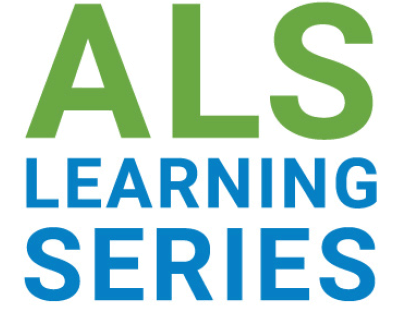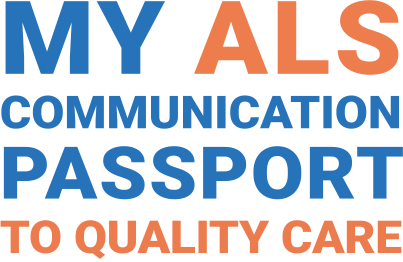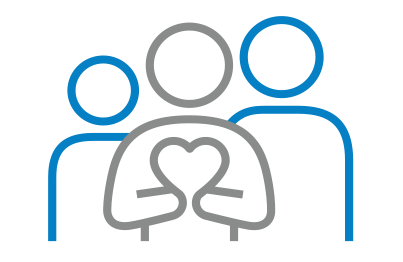ALS & Children/Youth
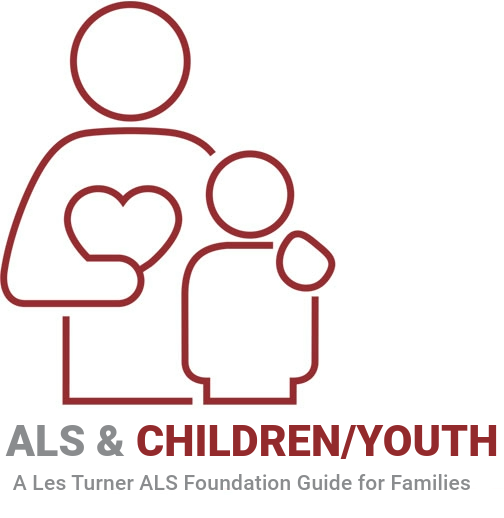
Conversations with children and youth about ALS
The below information is part of a partnership with Dr. Melinda S. 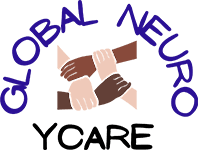 Kavanaugh and Global Neuro YCare, a global foundation dedicated to providing education and resources for children, youth and families living with ALS/MND - across language and culture. All materials listed below, and others, are freely available at www.globalneuroycare.org.
Kavanaugh and Global Neuro YCare, a global foundation dedicated to providing education and resources for children, youth and families living with ALS/MND - across language and culture. All materials listed below, and others, are freely available at www.globalneuroycare.org.
Being direct and honest
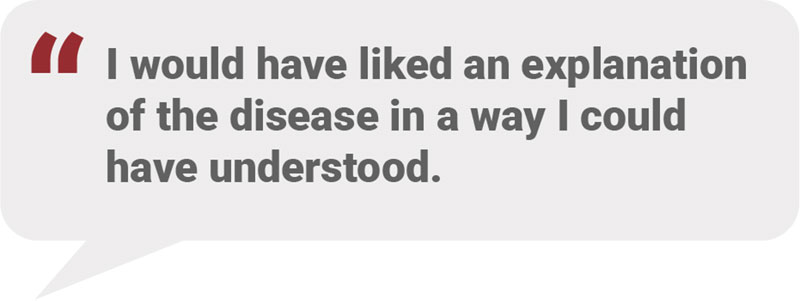

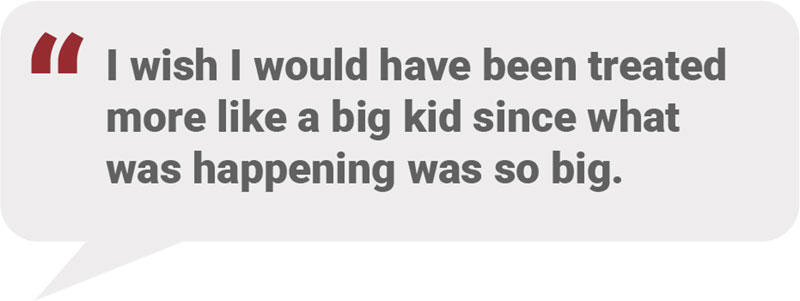
How to speak with your children about ALS
The guide, Families and ALS: A guide for talking with and Supporting Children and Youths, provides detailed suggestions for conversations by age and developmental stage.
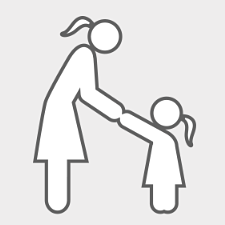
Start the conversation sooner rather than later
You may never feel “ready” to begin the conversation about ALS with your children. Although you should begin the conversation when you feel it is appropriate, psychologists recommend having the conversation sooner rather than later. Pick a time when you are doing something normal and calm, like relaxing at home, to put less pressure on both you and your children. If they don't want to talk, that is fine. Let them know they can come to you any time when they are ready. The key is to open the door for them.
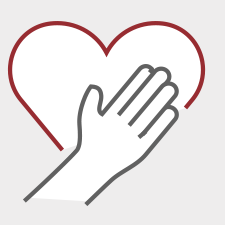
Be honest
Being honest with your children about ALS can be difficult, but age-appropriate honesty is necessary to maintain trust. This may include honestly sharing your own fears and concerns.
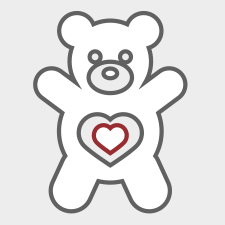
Use age-appropriate language
Using age-appropriate language will help your children better understand what is happening and what to expect in the future.

Allow them to ask questions and be prepared to answer them
Your children will likely have questions for you. It is important that you are prepared to answer them to the best of your ability. ALS is a complex disease, and some questions will be hard for you to answer because you may not know the answer yourself. If you do not know the answer to a question, let your children know, and don't hesitate to seek out support to get the answers you deserve.
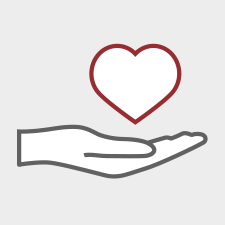
Keep the conversation open
Check in with your children often. As the disease progresses, children may not always feel comfortable asking questions. Make sure they know that they can talk to you about what is going on at home.
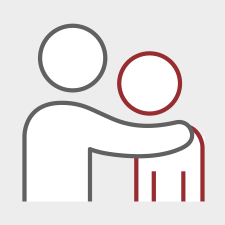
Acknowledge their feelings
Children experience complex feelings just like adults but often have a more difficult time regulating emotions. They may not react to the news in a way that you expect. Create a safe space for them to discuss their emotions by meeting them where they are and acknowledging their feelings.
Resources for talking with your children

Guides
The following guides were developed by Dr. Kavanaugh to support parents and school professionals who have a child impacted by ALS. All guides are freely available at www.globalneuroycare.org
Real Kids Talk About ALS: Feeling Normal, Sad, and Different: graphic novel for youth, ages 7-12
The ALS experience: It’s Different and Hard: A guide for middle school youth, ages 13-18
Families and ALS: A guide for talking with and Supporting Children and Youths
School, Friends, Work, and ALS: A Young Adult Guide to Balancing Life with ALS
At School: A guide to supporting Students who have been affected by ALS
Young caregivers
Care for ALS/MND often requires multiple caregivers, including children and youth. Yet, parents sometimes feel guilty when their children assist with caregiving.
Children/youth are often involved in many areas of caregiving with ALS. They typically assist with tasks such as transferring, dressing, assisting with feeding and showering/toileting. Yet, children/youth generally receive inconsistent training, which impacts their confidence to provide care — and the quality of life for the care recipient.. With training and support, caregiving can be a source of pride for the children.
Child/youth Caregiving Training and Support
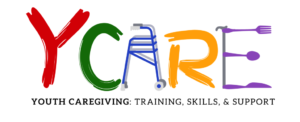 Developed and informed by clinical practice and research with families in ALS/MND, the YCare program provides hands-on training and support for children and youth caregivers.
Developed and informed by clinical practice and research with families in ALS/MND, the YCare program provides hands-on training and support for children and youth caregivers.
Led by ALS/MND health professionals, trained in the YCare model, the day-long activity-based YCare program provides children and youth the opportunity to: 1) meet health professionals, 2) ask questions about care, 3) learn and adapt care skills, and 4) meet and interact with “like” peers, who are also in families with ALS/MND.
YCare is available across the U.S. and globally. For more information, contact Global Neuro YCare (www.globalneuroycare.org).
Having your children help with caregiving is not inherently bad, but it is important for them to feel supported to prevent burnout, distrust and resentfulness.
How to increase your child’s confidence in providing care:
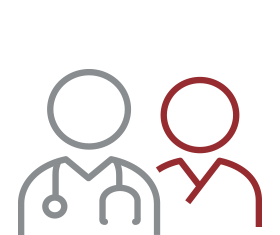
Attend family trainings
Allow your children to attend YCare and family trainings.
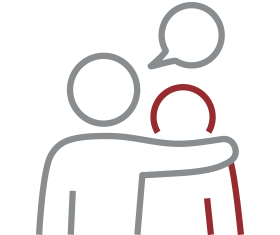
Explain how to help
Take the time to explain how to complete tasks and why you need their help. Always use age-appropriate language and engage trained health professionals.
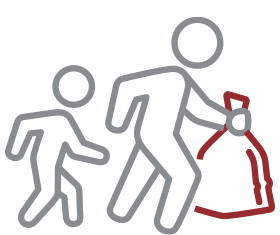
Work together as a team
Caregiving is a team effort, and your children are part of your team! Working together as a team will help reduce stress for everyone.
Supporting your children
How to speak with your children about ALS
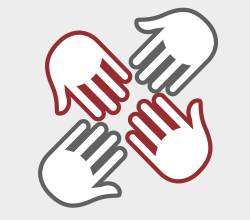
Support groups & camps
Children have a desire to connect with other individuals that are their age. Support groups can help your child connect with other children who are going through something similar and help them feel less isolated. Hope Loves Company is dedicated to providing emotional and educational support to children and young adults who have or had a loved one living with ALS. To learn more about their programs, visit: hopelovescompany.org.

Counseling
Children are at a higher risk for psychosocial distress during this time. Counselors are trained professionals who can help your child talk through their feelings and manage emotional distress.

Lead by example
Model healthy coping behaviors such as making time for self-care. Leading by example does not mean you have to be perfect, but children are likely to mirror your responses to challenging situations.
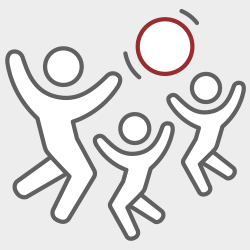
Engage in enjoyable activities
It is important for your children to take time for themselves and have fun. Encourage them to continue to participate in activities they enjoy such as participating in sports, playing video games or hanging out with friends.

Collaborate with your child’s school
Children may be afraid to talk with their teachers and peers about how ALS is impacting their life. It is important for families, teachers, and school counselors to communicate and ensure that children feel safe and supported at school. The guide, "At School: A guide to supporting Students who have been affected by ALS," is an excellent tool to share with school staff so they are prepared to support your child.
Learn more
My ALS Decision Tool™
ALS Learning Series
My ALS Communication Passport to Quality Care
Support Groups
Theses resources are made possible by a generous donation from the Gilbert & Jacqueline Fern Foundation and other donors to the Foundation.
Sign up for News and Updates
Get helpful resources and updates from the Les Turner ALS Foundation delivered straight to your inbox. You’ll receive information on additional decision tools to help you understand your treatment options and make the decision that's right for you, plus information on upcoming events, ALS research, clinical trials, and more.
